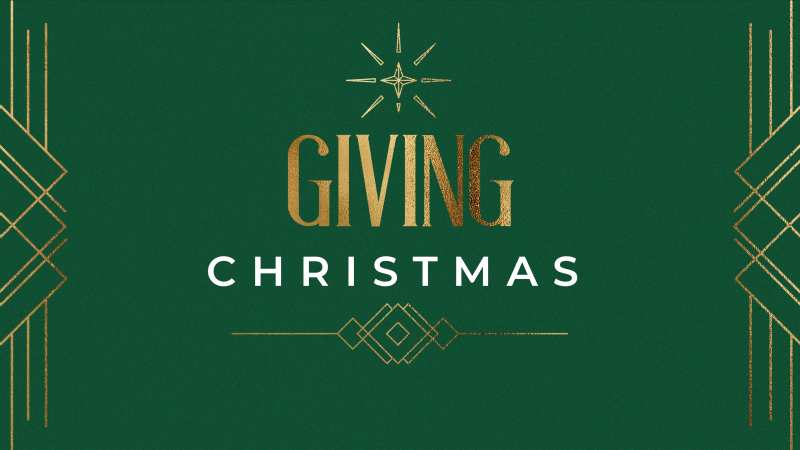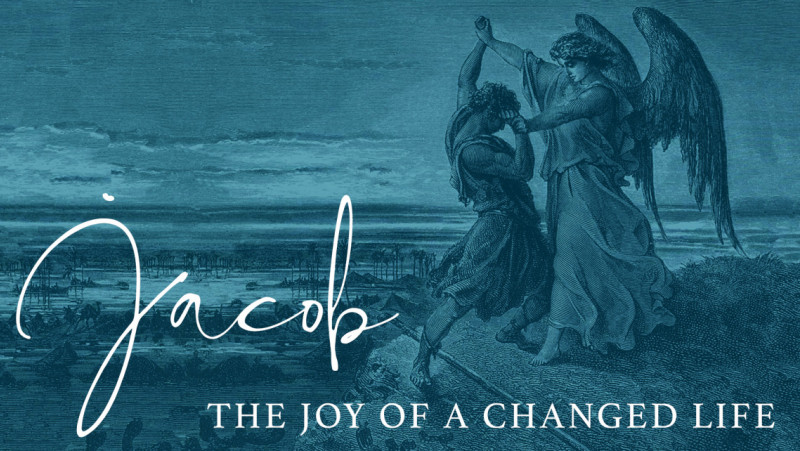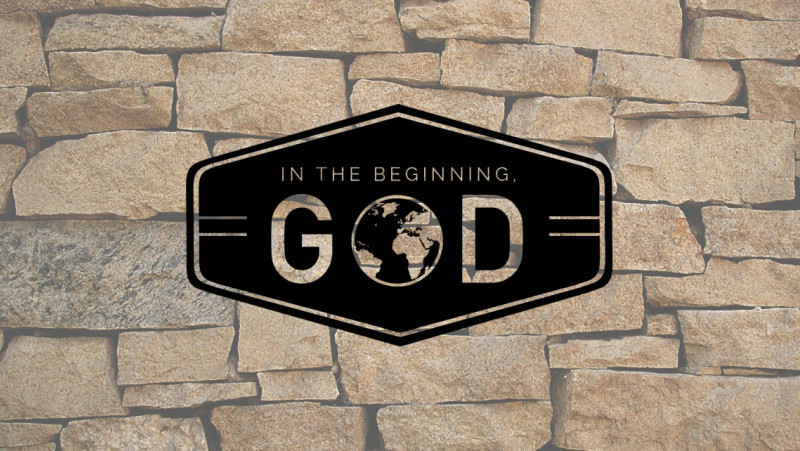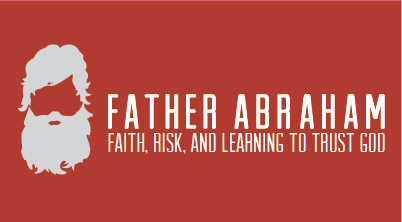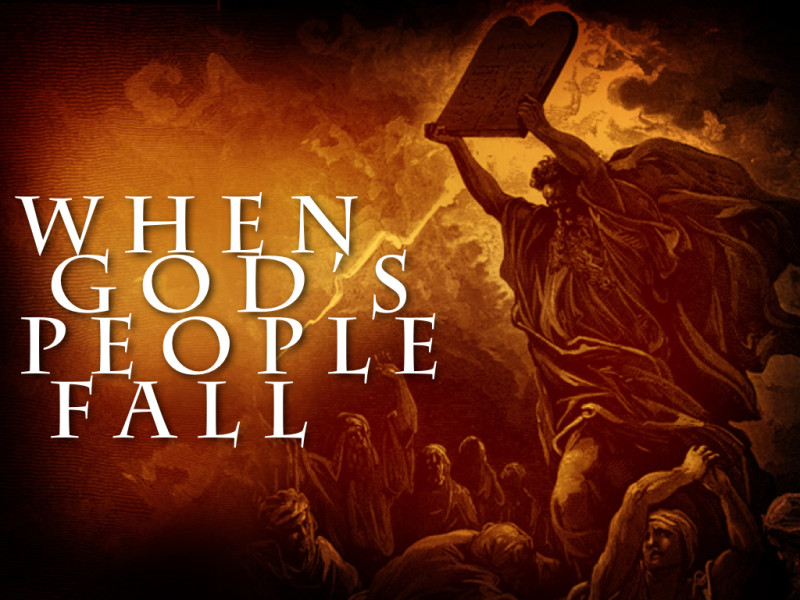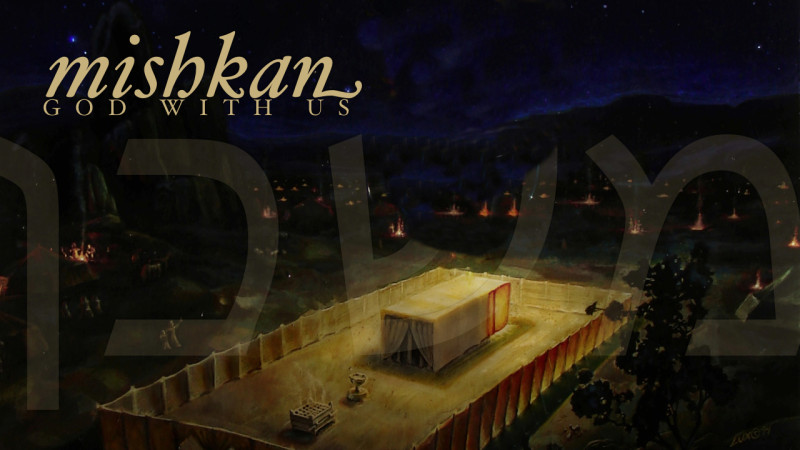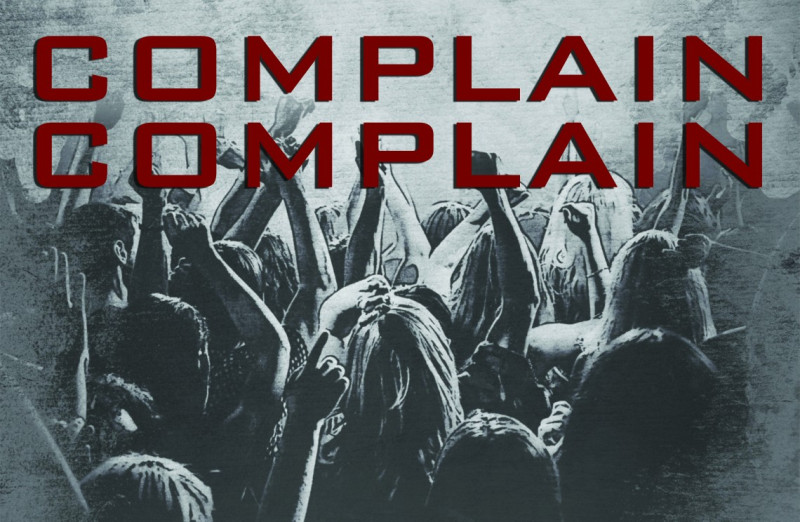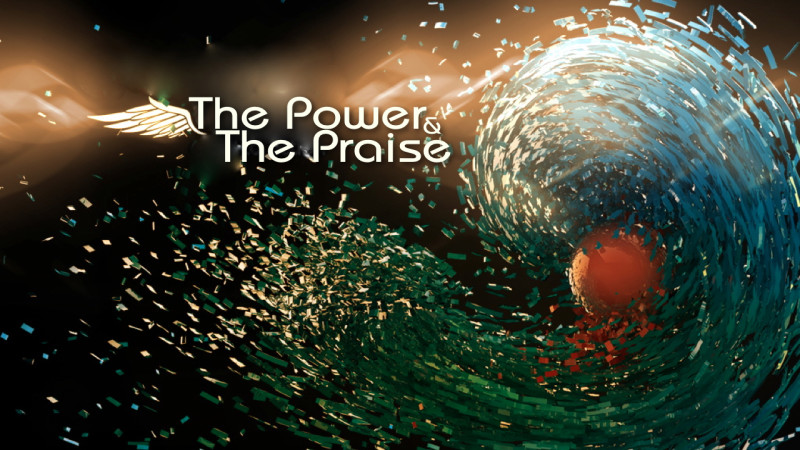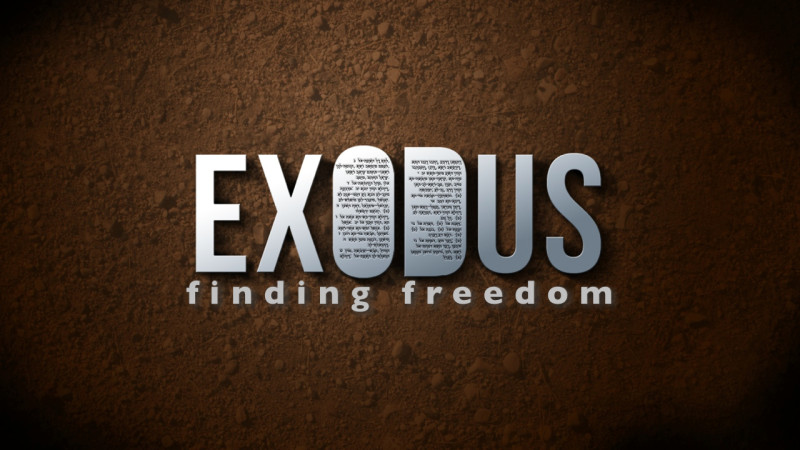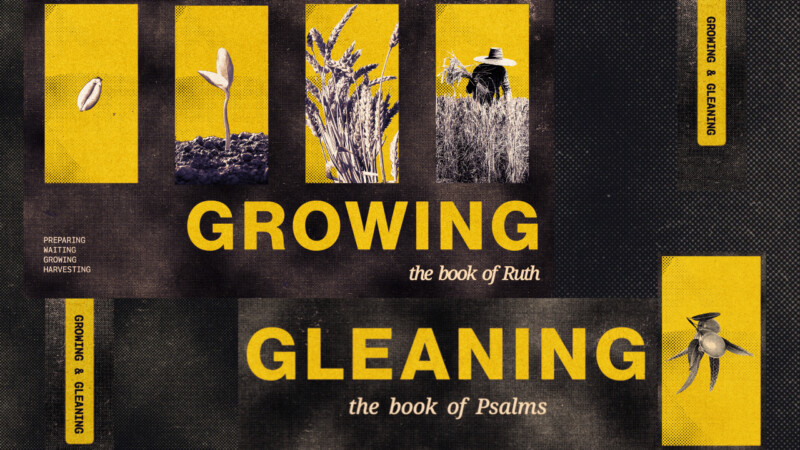God shapes us through his word
recent messages by series
Weekend services at Emmanuel are centered on Scripture and designed to help you become a disciple who listens to God’s Word and does what He says. Explore each series below to continue growing in faith and obedience. Looking for a full worship service online, including music? Watch the most recent services here.
Our Christmas Eve services will conclude our Christmas series. We’ve been tracking God's promise from Genesis 3:15 through centuries of Scripture. We’ve been learning from God’s people to cultivate our hope in His guarantee that He’ll make all things new through the Promised Child. And as we prepare our hearts for Christmas morning, we’ll see how God’s word makes it clear that Jesus is the One who’d been promised all along. His birth was the beginning of the fulfillment of God’s promise to make all things new.
There are NO notes for this message.
This weekend our Christmas series will continue to track God's promise of salvation from Genesis 3:15 into 2 Samuel 7. There we'll see the Lord focus His promise with another promise to a ruler named David. What the Lord wants His people to understand is that the best way to honor His promise is to simply receive it as a gift.
Our Christmas series continues to follow God's promise of restoration through Genesis and into the life of Abraham. In Genesis 22, we'll see faith and hope collide with a deeply unsettling challenge in Abraham's journey with God. And we'll get a good look at what's possible when faith and hope win out in our lives.
This weekend, we will continue our Christmas series, cultivating our hope in the promised Child. As we track that promise through Genesis, we'll see what God has to say about maintaining hope when things get tough.
THIS WEEKEND, we will begin a series called The Promised Child that will carry us through the Christmas season. It will be a conversation about hope and the waiting that comes between a promise and its fulfillment. It will also be a look at the story of the Bible, and how it all revolves around a promise God made in Genesis chapter three.
In our look at Genesis 22:1-14, we will learn three valuable lessons about the Lord’s provision and we'll see that God has many names. Each one amplifies His complexity and His capabilities.
This weekend Sam Ward will be sharing a stand-alone message, "Who Said That to You?" We will be diving into Genesis and taking a look into when "advice" may be deceit in disguise.
We begin a new 6-part series on great women of faith. Being Mother’s Day weekend, we will begin with the mother of the Jewish people (and, in a sense, the mom of all believers), SARAH. We will focus on the word FAITHFULNESS to describe Sarah and, of course, reflect on our own faithfulness.
We continue our series on GIVING CHRISTMAS by looking at the first of the treasures that wise men gave — GOLD. It reminds us that we can also share our wealth, but we must do so wisely.
If you missed the live broadcast of the last sermon, click HERE
Fill out your eCard by clicking HERE
THIS WEEKEND... We learned last week that God’s plan for reaching the world rested on a group of flawed individuals learning the lessons they needed to hear and putting them into practice. This weekend, we’ll look back at how this all got started by God intentionally blessing one man, Abraham, how that blessing has been passed down through the generations, and ECC’s opportunity to continue to pass the blessing in 2021.
We conclude the Jacob series and watch what happens after his name change. It isn’t all rosy as you might expect. We will see the impact of Jacob’s life on others, his struggles and his death. We are reminded that we want to live our lives in a way that we are not needing or wanting a “re-do.”
We move to part five of our study of Jacob and see him “wrestling with God.” Although this is a popular story, it is a difficult one to bring into our culture. We will read the story and talk about what we learn for our own lives.
We see Jacob return to Israel with his young family and we meet a man that is trustworthy. Jacob returns a changed man and it gives us all hope!
We come to the third study in our series on Jacob. We will see his meetings with God, Rachel, and Leah and we learn that often times, “what goes around, comes around,” as the deceiver gets deceived.
We continue our series on Jacob and learn about an extremely dysfunctional family. Hopefully, we will learn some good lessons for unity within our own families and our church family.
We begin a new series on Jacob called, THE JOY OF A CHANGED LIFE. This week we look at his birth and early life.
We will study the REAL NIMROD this weekend as we move to the story of the TOWER OF BABEL in Genesis 11.
We look at the first part of the story of the years following the flood. How did people end up where they did? In this study, we will see Noah’s drunkenness and the sin of his son, Ham. As always though, we will learn most about our God! We have two more weeks in our Genesis series; I hope that it has been helpful and practical to you.
We finish the flood story in Genesis 9:1-17 and learn about the things that changed after the flood, and the Covenant that God established with the earth. It is a wonderful story of how God made peace with us!
We continue our Genesis study by looking at Chapter 8 and the end of the flood. We learn a lot about God and Noah in this chapter, and we will try to understand the dates and times that Noah’s family spent in that box!
The rains begin as we study the 7th chapter of Genesis and continue our look at the Flood Story. Many people reject this account as myth or “figurative,” but I would suggest that the story happened as recorded. In this study, we see the animals arrive, the flood begin, and God closing the door.
We focus on the ARK of Noah and learn about its building and purpose. We will see that God had definite plans and the Noah was obedient. It is a wonderful chapter of Scripture!
Let’s just say it up front, this weekend we are studying one of the strangest passages in all of Scripture. We learn about the epitome of sin that led to the flood. (It is the “rest of the story” that we didn’t learn as children!) We will look at the seriousness of sin and God’s “regret” over even having created man. It will be a difficult passage to apply, but it is part of God’s Word and we need to understand it to be able to comprehend the reason for the flood story that follows.
We will study the genealogy of Adam. We will remember together that God is able to deliver on His promises. As you read this passage, take note of variations in the form of the writing.
This week we continue our series by looking at the "first family" and the dynamics between Cain, Abel, and the undeserved grace we receive from God.
We continue our series in Genesis by moving to chapter 3 and the story of SIN. There is much to learn here about the nature of sin and God’s plan to cover our sin. One of the worst results of sin is separation. Please read the chapter in preparation for worship.
This weekend is the story of the creation of man and woman which is still so important for us today! We will explore the purpose of man, his place in the world, and also the critical role of his partner, woman.
We begin an eleven-week study of the Book of Genesis and see what God tells us about origins, sin, the flood and the nations. This week is chapter one and the creation story.
We continue our YOU ASKED FOR IT SERIES by looking at the topic of cremation, afterlife and judgment. It doesn’t sound too upbeat, but I think you’ll find it helpful, even to answer others when they ask a question.
The awe and wonder surrounding the babies born in the Christmas story continue to hang in our hearts and minds this final weekend of 2015. So today, let's consider our own responsibilities as created children who are formed in God’s image. This message is especially directed to men, but we will be reminded that as God’s creation, we all were for designed for dominion – no one was created to hide.
Today we finish our ten-part series on the life of FATHER ABRAHAM. We have seen his faith in good times and bad, and today we see the end of the story. We are reminded that it is important to leave a Godly legacy behind. We are also reminded to look back at life, and be thankful.
Today we read one of the most famous stories of the Bible. It is the account of Abraham’s willingness to totally trust God, and give Him whatever He asks. This story is a reminder that the Lord expects us to trust Him and periodically, we may be tested for our own sake.
Today we are reminded that we often settle for the good, when God wants us to wait for His best. Those who make the greatest difference in our world, understand the vast difference between what is good and what is best. Abraham learned this the hard way, but if we are wise, we can learn from him.
We are reminded of the many temptations of life, and that most of us are particularly susceptible to certain temptations. When we don’t “pass the test” of those temptations, we often are tested again and again. However, we are reminded that God shows grace and mercy as we continue to grow into His likeness. And fortunately, God is patient in using imperfect people to do his work!
We see the continuation of the covenant between Abraham and God, and we see the “sign of the covenant.” We are reminded that every covenant requires obedience for it to work effectively, and we all need a way to remember a covenant. Therefore, whether its a wedding, or a commitment to God, we need a good way to remember our promise!
We see the joy of waiting for God’s plan, and the sorrow when we run ahead of God. We are reminded that even people of great faith are sometimes impatient. But when we fail to wait, there is a wonderful reminder in this chapter, that God still shows His mercy.
Last week we looked at the courageous “John Wayne Abraham.” And the very next chapter shows us a man who is filled with fear. Many of us are reminded of ourselves, and our own moments of courage, surrounded by private moments of worry and fear. In this study, we will see the weakness and private moments of Abraham, and learn how to deal with our own fears.
We see how our faith affects us in times of CRISIS. Specifically, we see that it is our duty to fight for the rights of others. In this passage, Abraham learns of Lot’s crisis and chooses to intervene for the sake of his faith. This intervention is time consuming, costly, and dangerous, but faith indicates that it’s the right thing to do.
We begin a ten-part series on the life of Abraham. As children, many of us learned a song about Father Abraham and his many sons!! But most of us don’t understand the deep faith of Abraham and his importance to our Christian faith. In this message, we will learn about the beginnings of Abraham’s faith, and the risks that needed to be taken to prove that faith.
This message concludes our short series on how to deal with sin by talking about a restart. We have learned about the sin of the Golden Calf and the consequences that followed. Now, we learn how to move on. In this passage, God goes back to the beginning and show us how to start over. This passage is of great comfort as we learn that even after we fall, we can still be used by God.
This message shows the affects of the Golden Calf story and we see God's plan for helping us return to Him. We see the value of stepping away from sin and of drawing close to Him. This passage reminds us of the nature of God through God's own words and it helps us to understand why sin is so serious to Him.
This message starts a short, three-week series on the story of the golden calf and the sin of God's people. In this series we will learn how to deal with our sin properly. In this study, we learn the cause for such sin, how God responds to it, and how we can begin to put ourselves back on the right track.
This message concludes our series on THE MISHKAN but looking at the ARK OF THE COVENANT which sat by itself in the Holy of Holies. This ark was actually two pieces of furniture: the chest and the lid, which was known as the Mercy Seat. We will learn about the wonderful history and theories of this ark but more importantly, we will learn about the lessons that it teaches us about the Holiness of God!
The last piece of furniture before entering through the curtain is called the Incense Altar. It's purpose is to fill the Holy Place with a beautiful fragrance but it is also a picture of Jesus Christ and of prayer. In this study, we will see that the altar has some interesting history and gives us some wonderful reminders about prayer.
The second piece of furniture inside the Mishkan (and the fourth overall) is the Table of Presence Bread. This table gives us some familiar symbols and some new ones. Today we will study a table and see how it affects our understanding of God and His Word. Hopefully, we will see that it is still very practical so many years after it disappeared!
The third piece of furniture (and the first inside the actual Mishkan) is the Lampstand. This seven-branched candlestick is a wonderful picture of Jesus Christ and His ministry in the life of the believer. Today, we walk into the Mishkan tent for the first time and begin to see the benefits to those who trust God.
The second piece of furniture that you would see after entering the Tabernacle complex was the copper basin (bronze laver). This is where the priests would wash their hands as a reminder from the cleansing by the blood. The basin will remind us of our need for baptism and daily cleansing.
The first and largest piece of furniture in the Tabernacle was the Bronze Altar. It was here that man began his relationship with God and also made his offerings. Today we will learn some of the meaning behind this altar and we will look at the seven kinds of offerings. The offerings will help us understand the attitudes and actions needed when we worship today!
This message begins a seven-week series on the tent that God asked His people to build for Him. It has been called the Tabernacle or the Tent of Meeting but the Hebrew word is "mishkan" which has a much larger meaning. God wants to "camp" with His people and so He requested that this mishkan be placed in the center of the encampment of Israelites. This message will show how it was constructed and we will see the incredible symbolism of this Mishkan and the one called Jesus.
This message concludes the study of the Ten Commandments by looking at the last two commandments. These two -- false testimony and coveting -- are different than the others as they include speech and thoughts. In this study, we will be reminded of being truthful and thankful in every situation.
This message will continue our study of God's Kingdom Rules by looking at the next three commandments, which deal with our relationships with others. These commandments are based on God's perfect plan for his people who are created in his image. We will discover through these next three commandments that inward attitudes always precede outward actions.
This message teaches us that honoring parents was extremely important to God and still is. One of the ways that God intended for his people to be set apart and holy among the nations was how they treated their parents. In fact, their prosperity in the Promised Land was directly tied to their obedience in this area. We will also see how we can apply this Kingdom Rule today in our own lives.
This message teaches us about misusing God's name and His special day. We will learn five specific ways that people can misuse God's name and then we will see that there are two interpretations on how to properly handle His day. This study will help us be more "in tune" with what God desires from people who are in a covenant with Him.
In this study, we will look at the order and plan of the "ten words" that God gave to His people. We will see that there is a Masterplan, even in the order of His rules. Then we will study the first two commandments and hopefully be able to evaluate our priorities and our "images" because of a new understanding.
This message begins a six-week series on the Ten Commandments. We will learn why God gave them and how we should understand them. Today, we will see the purpose of the commandments and it will help us to understand each commandment better. The Bible is clear as to their purpose, but many Christians have not understood the reason and the usefulness of God's Kingdom Rules.
This message concludes our short series about complaining, as we look at the Water from the Rock. In this story, we are reminded that God teaches us wonderful lessons even in the midst of our grumbling. We also see some of the beautiful "types" of Jesus in Exodus. Lastly, we will learn about the balance of praying and doing!
This message begins a short, two-week series on complaining. We will see how often the children of Israel complain and we will probably see ourselves mirrored in them. We will be reminded that most of us complain because things have changed, not necessarily because they are bad, but because they are different. And when God brings change to our lives, even if it is uncomfortable, it is always for our good. In this study, we see the manna of God and the many lessons that it teaches.
This message concludes the series by looking at how the Israelites praised God after crossing the Red Sea. Through their praise and this passage, we can learn a lot about how we should structure our corporate and private worship times today. In all of this, we will see again how powerful God is and our natural response to praise Him.
This message looks at one of the most famous stories of all the Bible -- the miraculous crossing of the Red Sea. Although the story of "water standing up like a wall" is exciting, there are many more important lessons in this story. In this passage we will see the plan of God throughout the ages for salvation; we will be reminded that you can be in the center of God's will and face great trials; and we will see how often we need to be reminded of God's power to guide us.
This message shows the excitement of the Israelites leaving Egypt but also the concern that God expresses for them to remember what He has done for them. In this passage, even before they have traveled very far, God gives His people two ways to remember His blessings and power. We learn from this passage how important it is to review what God has done for us!
This message shows the amazing story of the Passover Lamb and understand the connection with Jesus as our Lamb. We see that God gave His people a detailed calendar for the purpose of celebration and hope and then gave very specific instructions on how to celebrate their new holidays. In this passage, our faith can be encouraged as we see that God's eternal plan was for His Son to "the Lamb of God which takes away the sin of the world."
This message will look at two major thoughts from the eleventh chapter of Exodus. First of all, that God changes hearts and prepares people to do His will. This happens to everyone in our story. Secondly, we see that Moses becomes very angry at Pharaoh. We will learn that Moses had an anger problem, but sometimes his anger was appropriate. This is one of those times. We will talk about righteous anger and how to channel it.
This message looks at the plagues that devastated Egypt as Jehovah attacks the gods of the Egyptians. We will learn of God's power and the futility of trying to compromise with God. We will look at 8 of the ten plagues and see the desire of God to show Himself to be the true God while releasing His people.
This message begins a new series that will lead us through Easter. In it, we will see that God is willing to pour out His wrath on those who oppose Him. And yet, He often provides a way out, for those who will bow to Him. In today's text, we see the plan that God has to release His people from the bonds of slavery and we see the beginning of those plans through the first plague. We will learn that it is unwise to harden your heart towards God.
This message concludes our first series from Exodus by looking at God's Providence and our Persistence. We are reminded that we God calls us, He expects us to persist, even in apparent failure. He had placed everything we need at our disposal to be effective, and if we persist, He will use us.
Patience: It's not one of our favorite words. However, when it comes to living within the will of God, it is something that we must learn! Even though we sense a purpose on our lives, sometimes it takes longer than we would hope to see the good results. In this study of Exodus 5, we will see Moses struggling with patience and wondering what on earth or in Egypt God is doing!
This message continues our study of FREEDOM by understanding that there is great freedom in humility. We will look at the topic of PERSPECTIVE and realize that if we focus on ourselves, we will be afraid and possibly fail. But if we focus on Him who gives us Passion and Purpose, we need not be afraid. In this passage, we see Moses' perspective and realize that it was his biggest problem.
This message brings us to the famous story of the burning bush and teaches us that God had a specific purpose for Moses' life. this story is so familiar but we will be reminded that "When we least expect it, God draws us to Himself, and give us purpose." He is a Holy God with a perfect plan!
This message continues our study of Exodus by seeing God's plan and our passion. God has designed us to do the task that He has designed for us to accomplish. We need to be faithful to our heart's desire because, if we are living in obedience, that desire aligns with God's plan.
This message begin a 6-week series from the Book of Exodus called, Finding Freedom. But, this will also be our theme throughout 2012 as we work our way through Exodus and discover what freedom really means. In this message, we will consider those things which enslave us and we will be reminded that we, like the Israelites, probably need someone to help us!
This message talks about a different holiday than what you might expect, Firstfruits. We’ll learn about God’s plan for the resurrection of His Son through the celebration of an annual harvest festival. In all of this, we again see the sovereignty of God.
We are in Numbers 21 which is a TYPE of Christ in all of the Old Testament. We will learn about the “snake on the pole,” and how that is still so applicable today. It is a powerful passage.
We continue the IN THE DESERT series by jumping 39 years in the story to Numbers 20, but the story is very familiar. What we learn is that each generation has to learn the same lessons — and God hates our PRIDE. Although this account is thousands of years old, it was reaffirmed in the New Testament and is extremely applicable today.
Our Scriptural text is Numbers 14, where we see rebellion emerge in the life of God’s people.
We’ll learn that the Promised Land, for Israel, is a type of the life God intends for us. A whole generation of Israelites never experienced the Promised Land because fear kept them from moving forward to experience the life God wanted for them. Our fear can do the same to us!
We will look into the ugly power of jealousy as we move into Numbers chapter 12. We will learn that our jealousies sometimes focus us on things that don't matter, and we will see that God has no room for us to be jealous of those who have authority over us.
We jump to chapter 11 of Numbers to hear the people complain “in the desert”. We are going to learn some good things about complaint — why we often complain, and how we can identify and stop it.
We begin a series called IN THE DESERT. In this first study, we will look do an overview of the Book of Numbers as we prepare to study in-depth in the following weeks.
As the Israelites stood on the brink of entering the promised land, they were commanded to pass along a legacy of faith to the next generation. This intentional effort on their part would be crucial for their continued prosperity in the land as the people of God. Today it is no less urgent that we pass along our faith to the generation coming behind us. We will explore some "legacy principles" that will assist us in leaving a legacy that will make a difference for all of eternity.
We stand at a pivotal moment. Not an earth - shattering, change - your - life kind of thing, but a moment in time where we pivot from one year into the next. As we look back and thank Him for what He did in our lives this past year, we’d also be wise to consider what He’s got ahead for us.
We continue our series on WOMEN OF FAITH as we look at Deborah from the Book of Judges. This account is amazing and a bit graphic when it comes to violence. But it teaches us what happens when people have the COURAGE to follow the Lord.
This message finishes our series on Judges with a study on Samson. He is the final deliverer for the nation of Israel and the enemy is the Philistines.
This message teaches us about Gideon’s wicked son, Abimilech, and his evil desire to become king of Israel. You will also learn about Jephthah who does something unthinkable. As the end of the list of Judges comes closer, the sin is becoming deeper. How can a people turn so far from God? This study will remind us that any group of people who abandons the true God will go deeper and deeper into sin — and the way back becomes more and more difficult.
This message focuses on the 4th cycle in Judges and looks at the person of Gideon. Gideon was not a brave person (or one to follow as an example!) but God was patient with him and used him to show His power over the Midianites.
This weekend we study, “The Mountain Goat and the Honeybee.” In this sermon, we explore key lessons from the story of Deborah in Judges 4-5.
This study begins a 5-part series on Judges. This message looks at little-known judges, Othniel and Ehud. We will also overview the Book of Judges and learn about the downward spiral of a nation.
This weekend, we see how the story of Naomi in the Book of Ruth ends. We've walked with her through her famine, her waiting, and her growing; and now we get to see the harvest God had in store for her the whole time.
We'll begin our study of Ruth chapter four as the book moves toward its conclusion. While Naomi and Ruth wait for God's redemption, Boaz snaps into action. We'll follow along as he reflects God's heart and fights for the security and future of those who have sought refuge in the Lord.
We continue in Ruth chapter 3 and find Ruth, Boaz, and Naomi navigating a complicated and high-stakes plot twist that threatens the redemption they've been hoping for. The question is whether they will give in to false narratives and slide into bitterness, or allow God to lead them to the truth.
We begin Ruth 3 in our summer series, “Growing, the book of Ruth”. In this chapter, the “waiting” time is over. God is prompting action that will change the lives of Naomi, Ruth and Boaz forever.
We will continue our journey through chapter two of the book of Ruth. We'll see how God used the kindness of Boaz to stir up hope in the heart of a woman who was completely shut down in bitterness. And in that story, we'll experience an invitation to cultivate our hope as we walk through our own challenges.
We'll step back into our study of the Book of Ruth. We'll begin unpacking chapter two and follow along as Naomi and Ruth discover together whether their return to God and His people was worth it. Naomi left Israel with one narrative about God that has left her bitter and frustrated. As she revisits her old stomping grounds and her old narratives from a new vantage point, we'll see that God has some surprises in store.
We will continue our Series in the book of Ruth chapter one. We will walk a hard road with Naomi and Ruth. And along the way we will see God give Naomi room to get more and more clear about her deep hurt. We'll see how God's grace gives room for our grief, and how the road to redemption involves getting honest and open about what's ailing us.
We will begin digging into Ruth Chapter 1 in our series called "Growing." We'll get some critical background on the main character of the story. And we'll understand what we need to do whenever we find ourselves estranged from God in our times of suffering.
We will start our summer series in the book of Ruth with an introduction and overview. You'll be equipped with important context for the book and see how you can get the most out of our study together.




